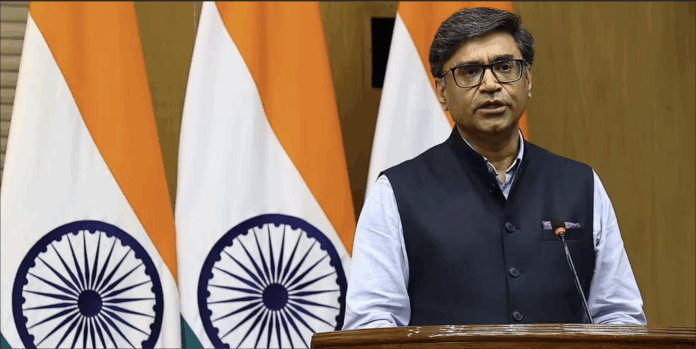Donald Trump’s renewed threat of punitive tariffs on India over its imports of Russian oil reveals less about ethics than about Washington’s shifting economic priorities, and a blatant double standard the Indian government is no longer willing to ignore.
On August 4, 2025, the Indian Ministry of External Affairs responded to Trump’s latest statement with uncharacteristic clarity: calling the 25% tariff increase plan “unjustified and unreasonable,” spokesman Randhir Jaiswal reminded Washington that India, like all major economies, will “take necessary steps to safeguard its national interests and economic security.”
This row is not new, but its rhetoric has escalated. Trump, never shy of bombast, accused Indians on Truth Social of not caring about the Ukrainians “killed by the Russian war machine.” It’s the kind of moral condemnation the former president reserves for economic adversaries, not strategic partners.
Trump’s Sanctions Theater: Oil Morality and Market Realpolitik
The Trump tariffs in India defines the confrontation. India has been one of the largest importers of discounted Russian crude since 2022, when Western buyers abandoned the market en masse. This left a vacuum New Delhi was only too happy to fill.
The justification is straightforward: when Europe redirected its energy supplies, India had to look elsewhere. Ironically, the U.S. had encouraged this diversification at the time to help stabilize global markets. Now, with American energy dominance more secure, the old encouragement has turned into punishment.
Delhi Retaliates, With Facts
India’s Foreign Ministry didn’t just protest, it named names. The same European Union that accuses India of fueling Russia’s war effort continues to import Russian fertilizers, rare minerals, and machine tools. The United States still imports Russian uranium for its nuclear industry and palladium for EV batteries.
As Jaiswal noted, India’s trade with Russia is driven by vital national needs. Western trade, by contrast, often remains luxuriously optional. This asymmetry fuels resentment—not just in New Delhi, but across the Global South, which increasingly sees Western sanctions not as instruments of justice, but tools of market manipulation.
Strategic Realignment or Political Posturing?
India’s reaction, measured but firm, suggests New Delhi no longer accepts to be the docile junior partner in its ties with Washington. As the largest democracy in the Indo-Pacific and a critical counterweight to China, India expects to be treated as a peer, not a scapegoat for America’s foreign policy inconsistencies.
Trump’s tariff threats are also timed, as always, for domestic effect. The Republican campaign thrives on narratives of tough-on-China, firm-on-trade, and uncompromising American exceptionalism. India, caught between geopolitical relevance and economic leverage, now finds itself collateral damage in a campaign season.
But if the U.S. is betting that India will simply bend under pressure, it may be misreading the room. New Delhi has deeper energy ties with Moscow, long-term infrastructure deals, and increasing influence in non-Western blocs like BRICS+. Washington’s leverage, once formidable, is no longer absolute.



